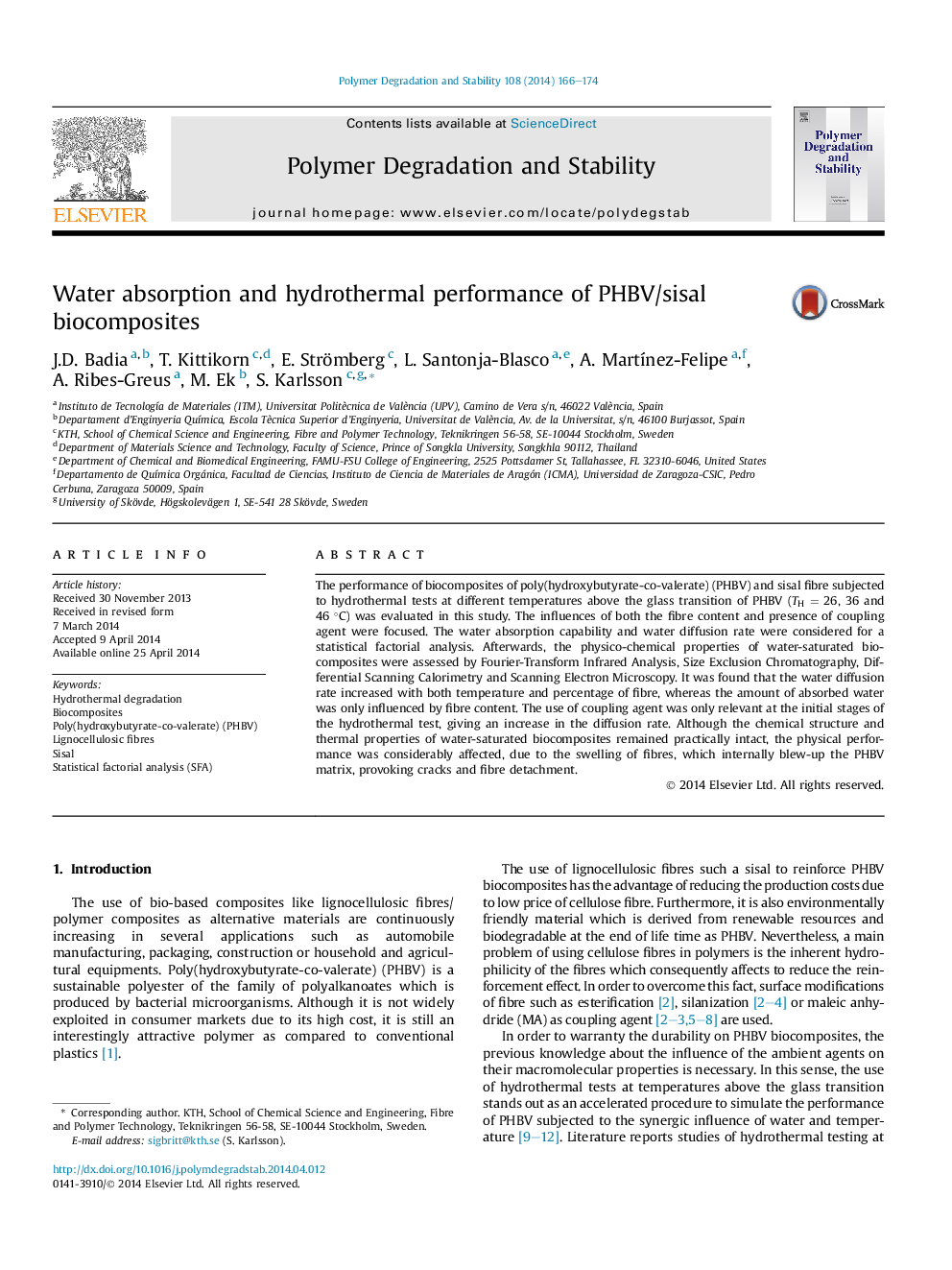| Article ID | Journal | Published Year | Pages | File Type |
|---|---|---|---|---|
| 5201757 | Polymer Degradation and Stability | 2014 | 9 Pages |
The performance of biocomposites of poly(hydroxybutyrate-co-valerate) (PHBV) and sisal fibre subjected to hydrothermal tests at different temperatures above the glass transition of PHBV (TH = 26, 36 and 46 °C) was evaluated in this study. The influences of both the fibre content and presence of coupling agent were focused. The water absorption capability and water diffusion rate were considered for a statistical factorial analysis. Afterwards, the physico-chemical properties of water-saturated biocomposites were assessed by Fourier-Transform Infrared Analysis, Size Exclusion Chromatography, Differential Scanning Calorimetry and Scanning Electron Microscopy. It was found that the water diffusion rate increased with both temperature and percentage of fibre, whereas the amount of absorbed water was only influenced by fibre content. The use of coupling agent was only relevant at the initial stages of the hydrothermal test, giving an increase in the diffusion rate. Although the chemical structure and thermal properties of water-saturated biocomposites remained practically intact, the physical performance was considerably affected, due to the swelling of fibres, which internally blew-up the PHBV matrix, provoking cracks and fibre detachment.
